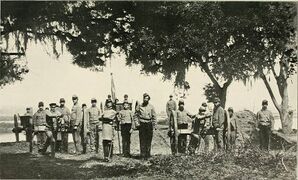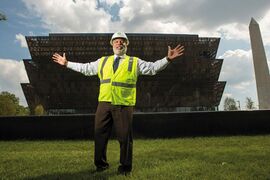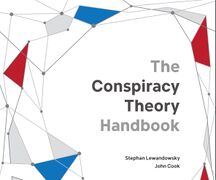News Gallery: Difference between revisions
m (→Vote in Poll) |
|||
| Line 24: | Line 24: | ||
== Photo Voltaic PV Solar Panels Inverter == | == Photo Voltaic PV Solar Panels Inverter == | ||
[https://theinverterstore.com/portfolio-items/what-size-of-inverter-do-i-need/ Inverter Information] [https://sungoldpower.com/collections/solar-panel/products/450-watt-monocrystalline-solar-panel?variant=40934837616777 Solar Panels 450W Mono Perc] [https://www.asce.org/publications-and-news/asce-7 ASCE-7 Building Codes] [https://sno-safe.com/s5pvkit2mid.html Solar Panel Clamp] [https://sno-safe.com/s5sclampmini.html?srsltid=AfmBOoqkmSqaJNBQw7STXwx_9lqTFjHr3kVuW-ozVipz7F8HW08CIw87R0I Mini Standing Seam Clamps] | [https://www.energy.ca.gov/programs-and-topics/programs/solar-equipment-lists California Energy Commission List of Approved equipment] [https://theinverterstore.com/portfolio-items/what-size-of-inverter-do-i-need/ Inverter Information] [https://sungoldpower.com/collections/solar-panel/products/450-watt-monocrystalline-solar-panel?variant=40934837616777 Solar Panels 450W Mono Perc] [https://www.asce.org/publications-and-news/asce-7 ASCE-7 Building Codes] [https://sno-safe.com/s5pvkit2mid.html Solar Panel Clamp] [https://sno-safe.com/s5sclampmini.html?srsltid=AfmBOoqkmSqaJNBQw7STXwx_9lqTFjHr3kVuW-ozVipz7F8HW08CIw87R0I Mini Standing Seam Clamps] | ||
{| | {| | ||
|- | |- | ||
Revision as of 13:12, 26 May 2024
Vote in Poll

Photo Voltaic PV Solar Panels Inverter
California Energy Commission List of Approved equipment Inverter Information Solar Panels 450W Mono Perc ASCE-7 Building Codes Solar Panel Clamp Mini Standing Seam Clamps
How Immigration Boosts the Economy
NPR This American Life 5 parts 2019
Despite backlash, Masha Gessen says comparing Gaza to a Nazi-era ghetto is necessary
 Gessen, who is Jewish and whose family lost loved ones in the Holocaust, has been criticized for a New Yorker essay published earlier this month in which they likened the Gaza Strip to the WWII-era ghettos that Nazis developed to segregate and control Jewish people in occupied Europe. Gessen argues in the essay that treating the Holocaust as a "singular event," unlike anything that has occurred before or after in history, not only is incorrect but makes it impossible to learn lessons from the Holocaust that are needed to prevent future genocides. Gessen notes there are key differences between the two: The Nazi claim that ghettos were necessary to protect non-Jews from disease "had no basis in reality," while Israel's stance that the isolation of Gaza is necessary to protect against Palestinian terrorist attacks "stems from actual and repeated acts of violence."
|
Yekaterina Duntsova barred from running against Putin in election
 His (Putin's) best-known opponent, Alexei Navalny, is serving prison sentences totalling more than 30 years and his supporters say they do not even know where he is, after they were told he had been moved from his previous penal colony earlier this month. Lawyers last had access to him on Dec. 6. "Any sane person taking this step would be afraid - but fear must not win," she told Reuters in an interview in November in which she called for the release of political prisoners and said Russians were "very tired" of the conflict in Ukraine. Putin's critics said the decision showed that no one with genuine opposition views would be allowed to stand against him next March in the first presidential election since the start of the 22-month war. They see it as a fake process with only one possible outcome.
|
Several surprising things about Trump's Colorado disqualification
 First, none of the judges disagreed that Trump was guilty of insurrection. At least, none of the dissenters mentioned that in their dissents. In other words, the CO Supreme Court ruled 7-0 that Donald Trump is guilty of insurrection. Two of the dissenters simply believed that the disqualification should be decided at the federal level. Third, conservative retired judge Michael Luttig was a guest on MSNBC last night. Based on the unassailable arguments in the written opinion, he predicted that SCOTUS will uphold the CO decision.
|
Can a socialist ex-marine fill Joe Manchin’s seat in West Virginia?
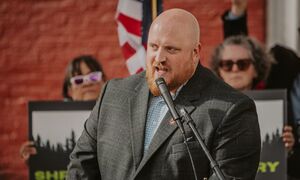 “We need leaders that are cut from the working-class cloth. We need representation that will go toe to toe with corporate parasites and their bought politicians. We need a leader who will not waver in the face of these powers that keep the boot on our neck,” Shrewsbury said to applause from the small group of supporters gathered behind him. The remarks were a swipe at Joe Manchin, the Democratic senator who for the past 13 years had managed to represent what has become one of the most Republican states in the nation. In recent years he has used his power as a swing vote in Congress to stop several of Joe Biden’s legislative priorities – attracting the ire of progressives and prompting Shrewsbury to mount a primary challenge. |
Many voters say Congress is broken. Could proportional representation fix it?
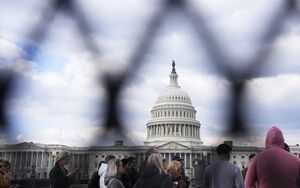 Instead of the single candidate with the most votes winning a House district's seat, a proportional representation system would elect multiple representatives in each district, distributing seats in the legislature roughly in proportion to the votes each party receives. Supporters say proportional representation could help temper the rise of political extremism, eliminate the threat of gerrymandering and ensure the fair representation of people of color, as well as voters who are outnumbered in reliably "red" or "blue" parts of the country.
|
The fatal hike that became a Nazi propaganda coup
 In 1936, a school group from south London went on a hike in the Black Forest. Despite the heroic rescue attempts of German villagers, five boys died. Eighty years on, locals are still asking how it happened. When they had set out from their youth hostel that morning, Keast had been warned that the snow would make his planned route hazardous. Even without snow, the locals considered it a challenge. The weather map for 17 April that hung in the hostel gave clear indication that conditions were going to turn. The previous day, the tourist office had warned Keast about the approaching storm, to which his response was: “The English are used to sudden changes in the weather.” The 13-year-old Ken Osborne, who had already written his first postcard home, wrote in his small black notebook: “Had breakfast. Left Freiburg about nine o’clock. It was snowing and we lost our way.” |
MerseyBeat
 Thriving locally in Liverpool in 1961, dominating the charts by 1963 and all but over by 1965, Merseybeat was a short-lived phenomenon that reverberated around the world. The sound of young working-class Liverpudlians recasting their love of American R&B, rock’n’roll and doo-wop in their own image, it was the scene that birthed the Beatles – whose debut album recently turned 60 – alongside other stars like Gerry and the Pacemakers, Cilla Black and the Searchers, becoming the UK’s first significant contribution to pop music history. It inspired similar scenes across the UK and beyond, and was sold back to Americans in the British Invasion. “It felt like something was about to happen,” remembers Billy J Kramer, who had two No 1 hits with his backing band the Dakotas. “But it was just an explosion. Liverpool was at the centre of things out of nowhere.”
|
Scientists say they’ve confirmed evidence that humans arrived in the Americas far earlier than previously thought
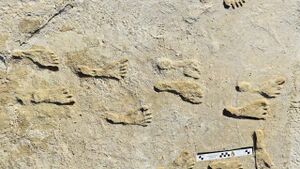 This date dramatically pushed back the timeline of humans’ history in the Americas, the last landmass to be settled by prehistoric people. The 61 dated prints, which were discovered in the Tularosa Basin, near the edge of an ancient lake in White Sands National Park, were made at a time when many scientists think that massive ice sheets had sealed off human passage into North America, indicating that humans arrived in the region even earlier. In a follow-up study published Thursday in the journal Science, researchers said they have produced two new lines of evidence to support their initial dates. When and how early humans first migrated to the Americas has long been debated and remains poorly understood. Current estimates for the first inhabitants range from 13,000 years ago to more than 20,000 years ago. However, the earliest archaeological evidence for the region’s settlement is sparse and often controversial, making the footprints especially important.
|
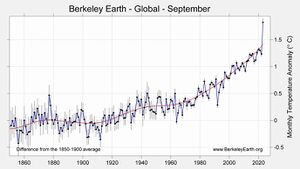
|
A Better Red vs Blue Map
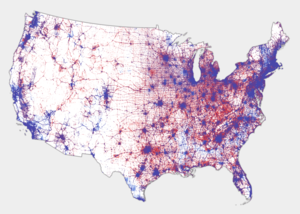 I read Daily Kos...daily. I rarely post but I wanted to suggest that we all stop using those misleading Red State vs Blue State maps and move to a more nuanced view like the one above. We are simply perpetuating the myth that the county is mostly red with a few coastal blue states thrown in. I think those types of maps just divide us more. Yes the “states” map shows the result because of the electoral college, but they don’t show the reality on the ground like population based maps do. Let’s stop fueling this misrepresentation and start supporting our blue friends who happen to live in a red state! |
We don’t talk about Leonard: The man behind the right’s Supreme Court supermajority
 If Americans had heard of Leo at all, it was for his role in building the conservative supermajority on the Supreme Court. He drew up the lists of potential justices that Donald Trump released during the 2016 campaign. He advised Trump on the nominations of Neil Gorsuch, Brett Kavanaugh and Amy Coney Barrett. Before that, he’d helped pick or confirm the court’s three other conservative justices — Clarence Thomas, John Roberts and Samuel Alito. But the guests who gathered that night under a tent in Leo’s backyard included key players in a less-understood effort, one aimed at transforming the entire judiciary.
|
50 years ago on 9/11, Nixon and Kissinger killed Allende and Chile's Socialist Democracy
 It’s hard to believe that Henry Kissinger is still alive. He is 100 years old now. For some reason, war criminals live to ripe old ages. Augusto Pinochet, the dictator who ruled Chile with a tyrannical iron fist for decades after the coup, lived to be 91. Kissinger and Nixon orchestrated the coup that killed Salvador Allende, the democratically elected President of Chile and replaced him with Pinochet, as declassified documents show, “Because Kissinger thought that Allende’s 'model' effect can be insidious." But back to Allende. NPR has an article up yesterday, The U.S. set the stage for a coup in Chile. It had unintended consequences at home. The Nation has a piece on 50 Years After “the Other 9/11”: Remembering the Chilean Coup. And the NY Times had an op-ed yesterday “I Watched a Democracy Die. I Don’t Want to Do It Again.”, written by Ariel Dorfman. Dorfman “a former cultural adviser in President Salvador Allende’s government, is the author of the novel ‘The Suicide Museum.’” Dorfman’s piece starts:
|
The 19th century sexual purity law that some want to revive
 There has been a surprising and consistent theme in several of Kacsymaryk’s rulings: the Comstock Act, a 19th-century sexual purity law that has lain dormant for more than a century. Last spring, when Kacsmaryk ruled that the US Food and Drug Administration (FDA) never had the authority to approve mifepristone, a pill used in the standard protocol for medication abortion, which now accounts for more than half of abortions performed in the United States, he argued that the Comstock Act made it a federal crime to mail abortion pills. Until recently, it was easy to dismiss the revival of Comstock as a political expedient: a backdoor attempt to ban abortion and nothing more. Read in context, Kacsmaryk’s latest ruling reveals a more explosive possibility: If approved by more judges and by higher courts, the Comstock Act could become a linchpin in extreme conservatives’ efforts to censor speech about sex. |
Clarence Thomas secretly participated in Koch network donor events
 While most Americans aren’t familiar with the 1984 case Chevron v. NRDC, it’s one of the Supreme Court’s most-cited decisions. Legal scholars sometimes mention it in the same breath as Brown v. Board of Education and Roe v. Wade. In essence, Chevron is about government agencies’ ability to issue regulations. After a law is enacted, it’s generally up to agencies across the government to make detailed rules putting it into effect. In 2005, Thomas wrote the majority opinion in a case that expanded Chevron’s protections for government agencies. Ten years later, he was openly questioning the doctrine. Then in 2020, Thomas renounced his own earlier decision, writing that he’d determined the doctrine is unconstitutional after all — a rare reversal for a justice with a reputation for being unmovable in his views. By last year, Koch network strategists sensed that victory could be at hand. During an internal briefing for network staff, Jorge Lima, a senior vice president at Americans for Prosperity, said the Supreme Court seemed primed to radically change its approach to the issue. The network was trying to find cases that could bring about major changes in the law, according to a video of the meeting obtained by the watchdog group Documented. “We’re doubling down on this strategy,” Lima told the crowd.
|
How Climate Change Is Disrupting the Global Supply Chain
 Scientists say that such climate-related disruptions are bound to intensify in coming years as the world warms. In addition, ports, rail lines, highways, and other transportation and supply infrastructure will be threatened by increases in sea level of an estimated 2 to 6 feet — and perhaps more — by 2100. Around 90 percent of the world’s freight moves by ship, and, according to Becker, inundations eventually will threaten most of the world’s 2,738 coastal ports, whose wharves generally lie just a few feet to 15 feet above sea level. But to most port managers, the threat still feels remote. The rate of future sea level rise is so uncertain and solutions so elusive that only a few port managers have taken action to counter the threat, and only a fraction have tried to assess it.
|
Three independent studies say that blood platelet factor PF4 prevents and reverses cognitive decline
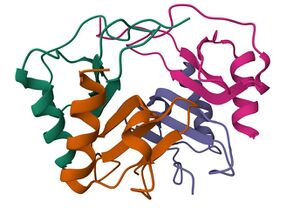 The three studies all landed on PF4 in different ways. Villeda knew that young blood transfusions restore cognitive function, so he kept testing different blood fractions until he narrowed it down to PF4. Dubal has long been interested in the anti-aging properties of a protein called klotho, and her paper shows that klotho induces PF4 production, and that’s what led her to test PF4 directly. Then Walker was trying to get at why exercise indisputably enhances cognition, and she found that exercise activates platelets, which then secrete — you guessed it — PF4. That’s a remarkable convergence that makes me think this is rock solid.California Homeless Study PDF
|
Why Billionaires Fund Anti-Trans & Anti-Black-History Political Movements
 The most visible feature of the Reagan Revolution was dropping the top income tax bracket for the morbidly rich from 74 percent down to 27 percent and then shooting the tax code so full of loopholes that today’s average American billionaire pays only 3.4 percent income tax. Many, like Trump for decades, pay nothing or next to nothing at all. (How much do you pay?) But for a few dozen, maybe a hundred, of America’s billionaires that’s not enough. Afflicted with the hoarding syndrome variant of obsessive compulsive disorder, there is never enough money for them no matter how many billions they accumulate.
|
California Homeless Study
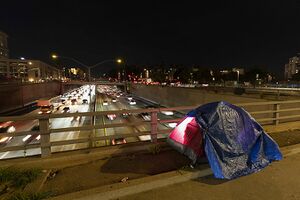 Nine out of 10 people in the study lost their stable housing in California; three-quarters were living in the same county where they lost their stable housing. It’s really important to realize that these are Californians who have been internally displaced by remarkably high housing costs, the highest in the country. If we have to put our finger on the single biggest cause of homelessness, whether or not people had disabling conditions, the single biggest driver was the inability to afford housing. At the end of the day, people just couldn’t afford their housing. California Homeless Study |
Rasmussen Push Polling
 It was the culmination of a bizarre shift for Rasmussen Reports. After two decades of fairly consistent right-leaning polling of elections and political issues, the firm had stopped acting like a normal pollster. Rather than simply asking Americans about their beliefs in conspiracy theories and fringe views, Rasmussen Reports has amplified those beliefs, lending them its legitimacy as a household name in politics — to the delight of right-wing politicians and influencers eager for new material.
|
Wimbledon once helped to stop a black player from competing
 In 1971, black tennis players from South Africa toured Europe, trying to escape the restrictions of apartheid. But even in the UK they faced exclusion. It’s time for this history to be faced |
The king of dark money effectively controls the US supreme court now
 From its recent rulings to its billionaire donor scandals, this supreme court term has been defined by judicial activist Leonard Leo |
Inside big beef’s climate messaging machine: confuse, defend and downplay
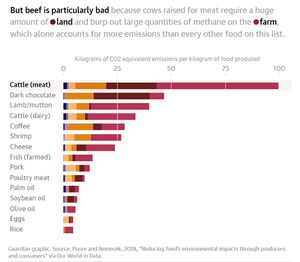 The US beef industry is creating an army of influencers and citizen activists to help amplify a message that will be key to its future success: that you shouldn’t be too worried about the growing attention around the environmental impacts of its production. In particular, it would like you not to be especially concerned about how meat consumption needs to be reduced if we are to avoid the most violently disruptive forms of planetary heating (even if all fossil fuel use ended tomorrow). It definitely does not want you to read scientific papers showing wealthy nations must reduce meat consumption to keep below the average global temperature rise of 2C, a threshold to stop systems collapse, mass extinctions, fatal heat waves, drought and famine, water shortages and flooded cities. |
Meet Rutger Bregman: the writer who told the rich to stop dodging taxes
 Take someone like Bill Gates, or the Bill and Melinda Gates Foundation. I’ve got very mixed feelings about them. There’s extraordinary evidence that they are doing a lot of good. They’re basically saving millions of lives, and who could be against that? But I don’t want to live in a society where we are dependent on the charity of one guy and his wife for something like that. That’s not what a just society looks like in my mind. In any just society, philanthropy should play a very small role, and you need to have a strong welfare state, strong governments, so that together, you can democratically decide on what you want to do. |
AudioCast DailyKos Electoral Systems Discussion
Volcanic microbe eats CO2 ‘astonishingly quickly’, say scientists
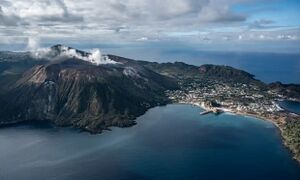 The new microbe, a cyanobacteria, was discovered in September in volcanic seeps near the Italian island of Vulcano, where the water contains high levels of CO2. The researchers said the bug turned CO2 into biomass faster than any other known cyanobacteria. |
Jimmy Carter embodies the 'road not taken' by many White evangelical Christians
 Long before he was called a Nobel Peace Prize laureate, a humanitarian and the 39th president of the United States, Jimmy Carter was known as something else: a "Goddamn n***er lover." That's the racial slur a White classmate of Carter's at the US Naval Academy assigned to him right after World War II when the future president befriended the academy's only Black midshipman.
|
‘Vulkan files’ leak reveals Putin’s global and domestic cyberwarfare tactics
 “People should know the dangers of this,” the whistleblower said. “Because of the events in Ukraine, I decided to make this information public. The company is doing bad things and the Russian government is cowardly and wrong. I am angry about the invasion of Ukraine and the terrible things that are happening there. I hope you can use this information to show what is happening behind closed doors.” The source later shared the data and further information with the Munich-based investigative startup Paper Trail Media. For several months, journalists working for 11 media outlets, including the Guardian, Washington Post and Le Monde, have investigated the files in a consortium led by Paper Trail Media and Der Spiegel. |
My family owned 1,000 slaves and profited from the trade: this is how I am trying to make amends
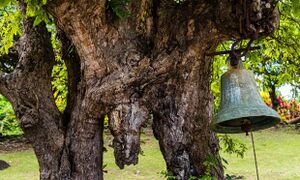 Last week I left the BBC, after a 30-year career, which was a joy and a privilege, to campaign for reparative justice full-time and encourage Britain to face up to its colonial debt. The coronation of King Charles in May is an opportunity to talk about the royal family’s links to slavery. Commonwealth leaders from the formerly enslaved nations will be there in Westminster Abbey. As the king himself has said about the enduring impact of slavery: “This is a conversation whose time has come.” |
Biden designates area sacred to tribes as national monument
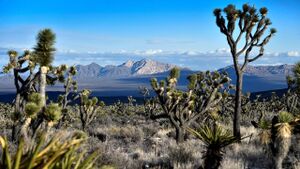 At more than 506,000 acres, the Avi Kwa Ame National Monument is one of the largest tracts of land to come under federal protection so far during Biden’s presidency, preserving Nevada’s Spirit Mountain and the desert around it. Biden’s proclamation is a major victory for the surrounding Fort Mojave Indian Tribe, which has been advocating for the monument’s creation for around three decades. “Avi Kwa Ame is the point of Mojave creation; it’s a very important and integral part of our history and belief system,” Ashley Hemmers, the tribal administrator for Fort Mojave, told CNN. “For us, that mountain is a living landscape; it’s like a person. If something were to happen to it, it would be like losing a loved one.” |
New data links Covid-19’s origins to raccoon dogs at Wuhan market  Newly released genetic data gathered from a live food market in Wuhan has linked Covid-19 with raccoon dogs, adding weight to the theory that infected animals sold at the site started the coronavirus pandemic, researchers involved in the work say. Swabs collected from stalls at the Huanan seafood market in the two months after it was shut down on 1 January 2020 were previously found to contain both Covid and human DNA. When the findings were published last year, Chinese researchers stated that the samples contained no animal DNA. |
Cost of Voting in the American States: 2022 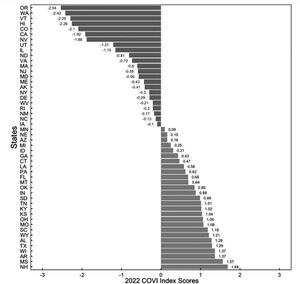 The ease of voting across the American States is constantly changing. This research updates work that established the relative ‘‘cost of voting’’ during presidential election cycles, in each of the 50 states, from 1996 to 2020. A 2022 iteration is necessary to consider the flurry of new legislative initiatives that passed state legislatures after the 2020 election cycle. Many states made voting easier by codifying changes composed in response to the worldwide COVID-19 pandemic. Other states, over concerns about voter fraud and seemingly at the prompting of former President Donald Trump, took a step backward and made voting more difficult. We learn that Oregon, which has the most progressive automatic oter registration process and all-mail voting, maintains the first position as the easiest state to vote in. Mississippi (49th) and New Hampshire (50th) stay at the bottom of the rankings as the most difficult states for voting. Their failure to move is largely due to these states failing to keep pace with reforms like online voter registration, no excuse absentee voting, and automatic voter registration, which have taken place in other states. Voters in Vermont will find voting much less challenging in 2022 as the state has adopted nearly all the progressive reforms used in other states that make voting easier, not the least of which is an all-mail balloting process. |
An Indigenous reservation has a novel way to grow food – below the earth’s surface 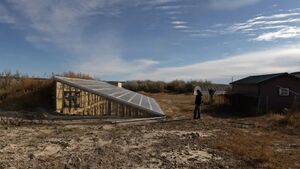 Underground greenhouses, emerged three decades ago in Bolivia as a way of trying to help rural communities gain food security. Their conditions can be controlled to protect the crops from fierce storms and extreme temperatures. Those underground on the reservation use geothermal energy to keep a stable year-round temperature of about 52F, and some use a series of tubes that capture and circulate heat from deeper underground. At the same time, the greenhouses absorb and bank heat from the sun. |
|
A fungus growing naturally on roots is found to detoxify mercury in soil and water 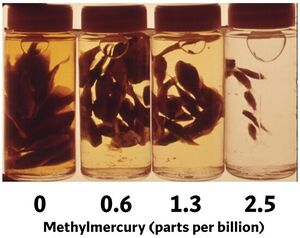 Methylmercury from sediment gets ingested by small fish, who are eaten by larger fish, and so on. Larger and longer-lived predators keep accumulating it, because organisms like fish and people are very slow to clear it from their systems. Warming waters actually accelerate this accumulation for reasons that go beyond mercury emissions; even though coal burning, and thus mercury emissions, have finally begun to decrease recently, methylmercury levels in fish continue to increase anyway. Of course that’s bad for people who eat fish, but it’s no picnic for the fish either: |
Why Texas Republicans still oppose Medicaid expansion 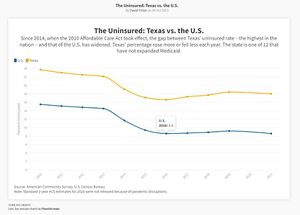 The result is that in the 12 states that still reject expansion, more than 2 million people have fallen into a coverage gap, meaning they make too much money to qualify for state Medicaid and too little to get subsidies in the ACA marketplace. A third of those people live in Texas, whose Medicaid program is so restrictive that parents in a family of three are denied coverage if they earn more than $4,000 a year. |
How the Iroquois Great Law of Peace Shaped U.S. Democracy  The Native American model of governance that is fair and will always meet the needs of the seventh generation to come is taken from the Iroquois Confederacy. The seventh generation principle dictates that decisions that are made today should lead to sustainability for seven generations into the future. And Indigenous nations in North America were and are for the most part organized by democratic principles that focus on the creation of strong kinship bonds that promote leadership in which honor is not earned by material gain but by service to others. |
Hollywood’s Finest
 In 2018, three Times journalists set off to tell the stories of three women in the world of the unhoused above the Hollywood Freeway. |
‘I kept reoffending’: why unhoused people are choosing to go to jail
 But Carver’s choice – purposefully, knowingly torpedoing his chance at freedom – fails to shock those who regularly work with the chronically homeless. They say they have seen it many, many times. Only occasionally does it make the news. |
Under Siege The Plot to Destroy Democracy
 The 2022 survey found that an overwhelming majority Black Americans believe strongly in the power of their vote to make a difference when it comes to social and racial justice, police violence, and economic opportunity.
|
Americans die younger in states run by conservatives, study finds  The study authors also noted that American life expectancy as a whole is lower than in most high-income countries, “fall[ing] between … Cuba and Albania”. |
|
The Martha's Vineyard migrant flight has echoes of a dark past: Reverse Freedom Rides  In the summer of 1962, after three days on a Greyhound bus, Lela Mae Williams was just an hour from her destination—Hyannis, Mass. She went to the front of the bus and asked the bus driver to pull over. She needed to change into her finest clothes. She had been promised the Kennedy family would be waiting for her. |
Haunting images of abandoned sites overrun by nature
 However, French photographer Romain Veillon is making it his mission to capture in pictures the potential result of a planet without people. The 38-year-old has spent years photographing abandoned places around the world that have been overtaken by nature, with eerily beautiful results. |
Agrivoltaics pairs solar panels with farming, solving multiple climate-caused problems
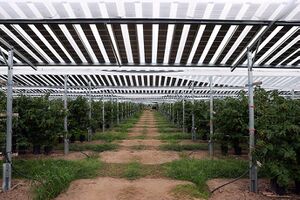 Plants do something similar where they use water to keep their leaves cool enough for photosynthesis so, if you take that stress off them, now they’re using less water.” Higgins found through research he co-authored two years ago that even just reserving 1% of farmland in the U.S. to be used for agrivoltaics could meet 20% of the country’s electricity needs through renewables, to say nothing of the profits earned from farming. “I think the keywords are: more food and better food, less water, extra revenue for the farm. It’s a four-way win for farmers,” Higgins told OPR. |
Trussonomics is a fanatical, fantastical creed, and the last thing Britain needs
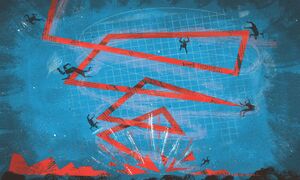 This doctrine insists that politics submits to “the market”, which means, when translated, that democracy must submit to the power of money. Any impediment to the accumulation of wealth – such as public ownership, tax, regulation, trade unions and political protest – should be torn down, either quickly and noisily or slowly and stealthily. When consumer choice is unencumbered by political interference, the market is allowed to become a Great Winnower, sifting us into a natural hierarchy of winners and losers. |
Prehistoric women were hunters and artists as well as mothers, book reveals
 Focusing on the Upper Paleolithic period of 10,000 to 40,000 years ago, the book highlights the etchings found on stone plaquette at the Paleolithic site of Gönnersdorf in Germany, of a woman with a baby carrier on her back, allowing her hands to be free for hunting and foraging. The documentarians note studies of skeletons that reveal the strength of the upper arm muscles of women, and a recent finding at Peru’s Wilamaya Patjxa site of evidence of humans hunting big game. Five burial sites were excavated and six individuals were exhumed. Two of them were found with hunting tools: a man in his 30s, and a young woman under the age of 20. Twenty-four stone artefacts had been placed in the young woman’s tomb, comprising a toolkit of everything needed to hunt and butcher big game: six projectile points, four scrapers, a knife and several chipped flakes of stone.
|
Cells from middle-aged people reprogrammed back to youthful state
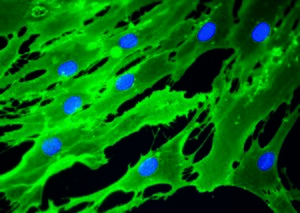 A group of researchers in the UK has found a way to rewind the effective biological age of human cells by about 30 years without causing them to lose their functional identity. They took dermal fibroblast cells from middle-aged humans and reset the controls to make them behave like cells from a 20-something. This is the first time such a thing has been done, and it carries substantial weight for anti-aging and regenerative therapies. |
Our food system isn't ready for the climate crisis
 The climate breakdown is already threatening many of our favorite foods. In Asia, rice fields are being flooded with saltwater; cyclones have wiped out vanilla crops in Madagascar; in Central America higher temperatures ripen coffee too quickly; drought in sub–Saharan Africa is withering chickpea crops; and rising ocean acidity is killing oysters and scallops in American waters. All our food systems – agriculture, forestry, fisheries and aquaculture – are buckling under the stress of rising temperatures, wildfires, droughts, and floods. Even in the best-case scenario, global heating is expected to make the earth less suitable for the crops that provide most of our calories. If no action is taken to curtail the climate crisis, crop losses will be devastating. |
Putin’s war shows autocracies and fossil fuels go hand in hand. Here’s how to tackle both
 Now that we’ve watched Russia launch an oil-fired invasion of Ukraine, it’s a little easier to see this trend in high relief – but Putin is far from the only case. Consider the examples. And so we were left contemplating a world whose people badly want action on climate change, but whose systems aren’t delivering it. In 2021 the UN Development Programme conducted a remarkable poll, across the planet – they questioned people through video-game networks to reach humans less likely to answer traditional surveys. Even amid the Covid pandemic, 64% of them described climate change as a “global emergency”, and that by decisive margins they wanted “broad climate policies beyond the current state of play”. As the UNDP director, Achim Steiner, summarized, “the results of the survey clearly illustrate that urgent climate action has broad support amongst people around the globe, across nationalities, age, gender and education level”. |
Could Putin Be Failing Because of a Lack of Democracy?
 Could he simply be failing because of a deficiency of democracy? Could it possibly be that simple? Were the Founders of our democracy and the builders of democracies worldwide that have now evolved from it really that brilliant? Is there some sort of practical, mathematical, scientific, and predictable mechanism at work here? Astonishingly, the answer is, “Yes.” What all of those analyses miss about why Putin would have made such a disastrous decision is the importance of democracy — or, in this case, the lack of democracy — in Russia. |
A New Report Adds Evidence That Trump Was a Russian Asset
 Donald Trump was a tool in a long-running Russian campaign to weaken the United States. That’s been documented in Republican-led investigative reports, and now it has been updated with new evidence, thanks to the U.S. Intelligence Community’s assessment of the 2020 election. The report, drafted by the CIA, the FBI, and several other agencies, was released in unclassified form on Tuesday, but it was presented in classified form on Jan. 7. In other words, it was compiled, written, and edited during Trump’s administration. It destroys his lies about the election, and it exposes him as a Russian asset. |
Humans Are Doomed to Go Extinct
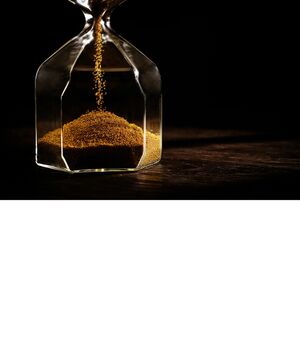 The most insidious threat to humankind is something called “extinction debt.” There comes a time in the progress of any species, even ones that seem to be thriving, when extinction will be inevitable, no matter what they might do to avert it. The cause of extinction is usually a delayed reaction to habitat loss. The species most at risk are those that dominate particular habitat patches at the expense of others, who tend to migrate elsewhere, and are therefore spread more thinly. Humans occupy more or less the whole planet, and with our sequestration of a large wedge of the productivity of this planetwide habitat patch, we are dominant within it. H. sapiens might therefore already be a dead species walking.
|
This is a fossil fuel war’: Ukraine’s top climate scientist speaks out
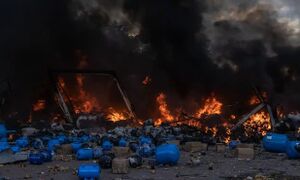 “Burning oil, gas and coal is causing warming and impacts we need to adapt to. And Russia sells these resources and uses the money to buy weapons. Other countries are dependent upon these fossil fuels, they don’t make themselves free of them. This is a fossil fuel war. It’s clear we cannot continue to live this way, it will destroy our civilization.” The IPCC report, described by António Guterres, the UN secretary general, as an “atlas of human suffering and a damning indictment of failed climate leadership”, is the most comprehensive catalogue yet of the consequences of global heating. Extreme heat and the spread of disease is killing people around the world, about 12 million people are being displaced by floods and droughts each year and the viability of food-producing land is shrinking. |
Half of US adults were exposed to harmful lead levels as kids, study finds
 The scientists from Florida State University and Duke University also found that 90% of children born in the US between 1950 and 1981 had blood-lead levels higher than the CDC threshold. And the researchers found significant impact on cognitive development: on average, early childhood exposure to lead resulted in a 2.6-point drop in IQ.
|
Climate Change 2022: Impacts, Adaptation and Vulnerability
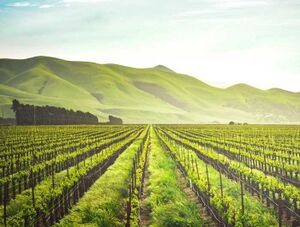 Climate change is affecting nature, people’s lives and infrastructure everywhere. Its dangerous and pervasive impacts are increasingly evident in every region of our world. These impacts are hindering efforts to meet basic human needs and they threaten sustainable development across the globe. All life on Earth – from ecosystems to human civilization – is vulnerable to a changing climate. Since the first IPCC reports, the evidence has become stronger: our world is warming and dangerous climate change and extreme events are increasingly impacting nature and people's lives everywhere. This can be seen in the depths of the ocean and at the top of the highest mountains; in rural areas as well as in cities. The extent and magnitude of climate change impacts are larger than estimated in previous assessments. They are causing severe and widespread disruption in nature and in society; reducing our ability to grow nutritious food or provide enough clean drinking water, thus affecting people's health and well-being and damaging livelihoods. In summary, the impacts of climate change are affecting billions of people in many different ways. |
Canada's trucker protesters aren't who Americans might think
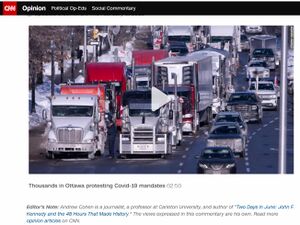 Carlson, Trump and Musk see something monumental here. They're wrong. Whatever the facile comparisons, familiar symbols and fearful words, this Canadian protest isn't a grassroots revolt or even a Prairie brushfire. More likely, it's a winter carnival, ephemeral, a flaring of anger -- and one that is very, very Canadian. |
The US senate presents a long-term threat to US democracy
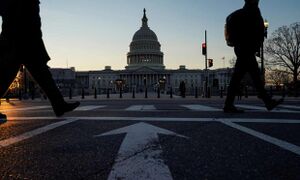 The filibuster has consistently been an instrument of white Christian domination: during the 20th century, it was used predominantly to block civil rights legislation and measures such as anti-lynching bills. However .... Let’s be specific about how undemocratic an institution this is – something that is best captured in numbers: in the current 50:50 Senate, Democratic senators represent 40 million more voters; by about 2040, 70% of the country will be represented by just 30 senators, while less than one-third of the electorate will get to determine 70 out of 100 members of the Senate. |
Carter warns America 'teeters on the brink of a widening abyss' in stark op-ed ahead of January 6
 "I now fear that what we have fought so hard to achieve globally -- the right to free, fair elections, unhindered by strongman politicians who seek nothing more than to grow their own power -- has become dangerously fragile at home," said Carter, who in his post-presidency started the Carter Center, a nonprofit that monitors free elections around the globe. |
It's Past Time For Democrats To Defy the Supreme Court
 The year 1981 was a big one for court-stripping—or, as it’s sometimes called, jurisdiction-stripping. No fewer than 30 pieces of legislation were introduced that year into the US House of Representatives by Republican congressmen that included court-stripping provisions. It was a huge topic of discussion and legal activity among Republicans. And a young lawyer working in Ronald Reagan’s Justice Department, an up-and-comer named John Roberts, was hot on the trail. … |
‘We will all die’: In Kenya, prolonged drought takes heavy toll
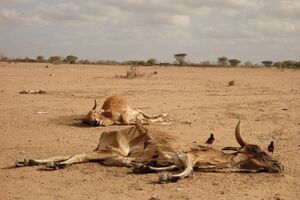 Since September, much of Kenya’s north has received less than 30 percent of normal rainfall – the worst short-rain season recorded in decades, according to the Famine Early Warning Systems Network. The lack of rainfall has wiped out pastures and exacerbated food and water shortages. It wasn’t always like this. While residents such as Adow are used to lean times when faced with the effects of droughts – when maize becomes their only meal, the distance to find water extends, their animals become so weak their bones poke from underneath their skin – they are also accustomed to the eventual return of rainfall and, along with it, greener pastures, healthier animals and fewer financial troubles.
|
The 2021 Made in America Holiday Gift Guide
 By shopping Made in America this holiday season, you can help strengthen American manufacturing and support good factory jobs. But best of all, these American-made gift ideas are just really cool! We think there’s something for everyone on your list, but if you still can’t find what you’re looking for, check out our Made in America Directory or previous gift guides, which are linked below. And don’t forget to share the gift guide with family and friends, and on social media using the hashtag #MadeinUSAGifts. |
I was wrongly convicted and sentenced to death. We need to do more to help exonerees.
 There are nearly 2,900 exonerees in the United States. Many are the lucky ones who had DNA available in their case. I lost 17 years of my life, but I’ve lost more than just hours and days. I lost an innocent man who was my husband; I missed birthdays and moments that can never be replicated. My life is dedicated to helping others who have faced wrongful incarceration.
|
Why the WHO approval of the first malaria vaccine is a big deal
 But progress is happening. On Wednesday, the World Health Organization (WHO) announced it has given its stamp of approval to a vaccine against malaria for children for the first time, after encouraging results from a pilot study that has reached hundreds of thousands of children across parts of sub-Saharan Africa since 2019. The vaccine, called Mosquirix and made by GlaxoSmithKline, is far from perfect — it produces about a 30 percent reduction in severe malaria in fully vaccinated children, which is lifesaving but smaller than would be hoped for.
|
U.S. retail operations got lean by making CEOs fat, and now everyone is paying the price
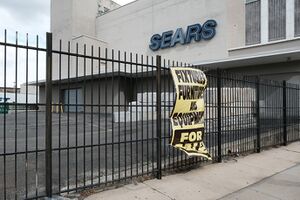 For an on-the-ground example, see Costco. Throughout the pandemic, even as photographers snapped shots of the empty racks at other retailers, Costco has done a phenomenal job of keeping its stores operating not just as well as they did before the pandemic, but better. Same store sales are up 16% in the last year, and Costco managed this while at the same time increasing their own online sales by 44%. It’s done that, in part, by keeping employee turnover at a minimum, which comes from years of paying its employees well, offering them benefits, and respecting their health concerns during the pandemic. If “lean” companies are now finding themselves unable to keep the shelves stocked, Costco is fat and happy. |
The Most Detailed Map of Cancer-Causing Industrial Air Pollution in the U.S.
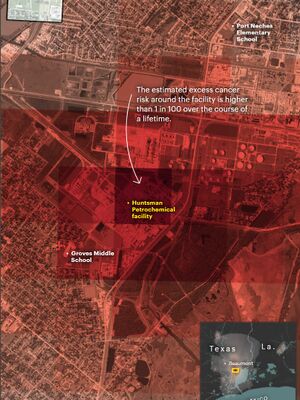 It’s not a secret that industrial facilities emit hazardous air pollution. A new ProPublica analysis shows for the first time just how much toxic air pollution they emit — and how much the chemicals they unleash could be elevating cancer risk in their communities. ProPublica’s analysis of five years of modeled EPA data identified more than 1,000 toxic hot spots across the country and found that an estimated 250,000 people living in them may be exposed to levels of excess cancer risk that the EPA deems unacceptable. |
Beware: Gaia may destroy humans before we destroy the Earth
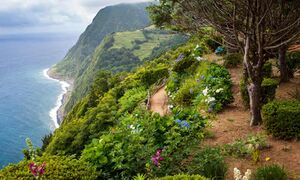 This division is as much of a mistake as the error made by universities when they teach chemistry in a different class from biology and physics. It is impossible to understand these subjects in isolation because they are interconnected. The same is true of living organisms that greatly influence the global environment. The composition of the Earth’s atmosphere and the temperature of the surface is actively maintained and regulated by the biosphere, by life, by what the ancient Greeks used to call Gaia.
|
Earth is already becoming unlivable. Will governments act to stop this disaster from getting worse?
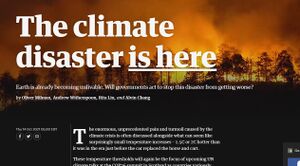 These temperature thresholds will again be the focus of upcoming UN climate talks at the COP26 summit in Scotland as countries variously dawdle or scramble to avert climate catastrophe. But the single digit numbers obscure huge ramifications at stake. “We have built a civilization based on a world that doesn’t exist anymore,” as Katharine Hayhoe, a climate scientist at Texas Tech University, puts it. |
How natural disasters benefit rich people but make the poor poorer – an illustrated story
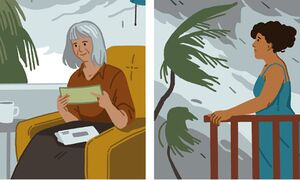 |
Pandora papers: biggest ever leak of offshore data exposes financial secrets of rich and powerful
 Branded the Pandora papers, the cache includes 11.9m files from companies hired by wealthy clients to create offshore structures and trusts in tax havens such as Panama, Dubai, Monaco, Switzerland and the Cayman Islands. They expose the secret offshore affairs of 35 world leaders, including current and former presidents, prime ministers and heads of state. They also shine a light on the secret finances of more than 300 other public officials such as government ministers, judges, mayors and military generals in more than 90 countries.
|
The myths about slavery that still hold America captive
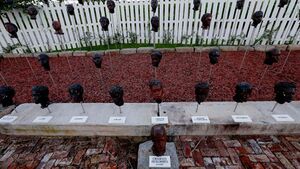 The idea that an institution that existed for 250 years and has only not existed for a little over 150 years. An institution in which there are people who are alive today who were loved, raised by, and in community with people born into chattel slavery. The idea that that would have nothing to do with what the contemporary landscape of inequality looks like today is morally and intellectually disingenuous. |
America faces supply-chain disruption and shortages. Here’s why
 The specific policies that led to our supply constrained world are lax antitrust, deregulation of basic infrastructure industries like shipping, railroads and trucking, disinvestment in domestic production, and trade policy emphasizing finance over manufacturing......Take biopharmaceutical equipment necessary to make vaccines. There’s a shortage of fancy plastic bags that you mix chemicals in to make medicine, which isn’t surprising in a pandemic. But the reason for the shortage isn’t just Covid but a merger wave; over the last 15 years, four firms bought up the biopharmaceutical equipment industry, without any antitrust agency taking meaningful action. These firms now have market power, and dominate their competitors, by ensuring their bags can only interoperate with their specific mixing machines. It’s like not having enough Keurig coffee machine pods; the shortage isn’t the coffee, it’s the artificial bottleneck used to lock in customers.......Ocean shipping is the same. The 1997 Ocean Shipping Reform Act legalized secret rebates and led to a merger wave. The entire industry has now consolidated globally into three giant alliances that occasionally crash their too-big-to-sail ships into the side of the Suez canal. |
Ranked-choice voting is the best fix for our democratic crisis
“A complicated, complex field simplified with a simple trip to the ballot box, at a fraction of the cost of a full-fledged runoff" 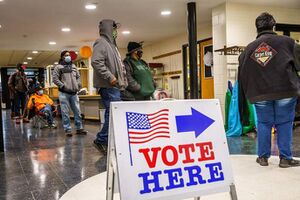 |
Bitcoin miners align with fossil fuel firms, alarming environmentalists

|
Flying Microchips The Size Of A Sand Grain Could Be Used For Population Surveillance'
 |
How Trump with Pence's Help Planned to Overthrow the Election

|
‘Havana syndrome ’ and the mystery of the microwaves
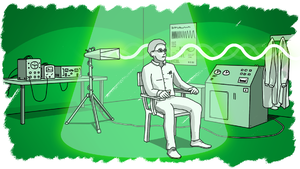 |
Adding Rock Dust to Soil Can Capture Carbon
 |
Economists' erroneous estimates of damages from climate change
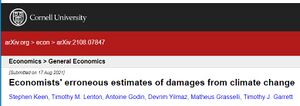 |
U.S. boarding schools for Indians had a hidden agenda: Stealing land’
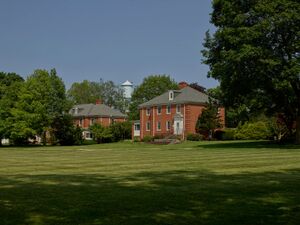 |
Forget the Alamo: The Rise and Fall of an American Myth’
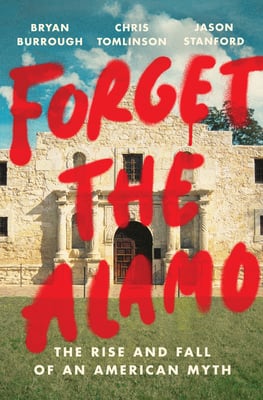 |
Too hot to work: the dire impact of extreme heat on outdoor US jobs’
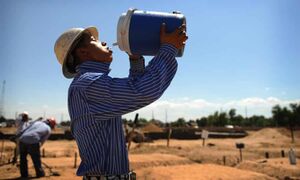 |
IPCC climate report: Earth is warmer than it’s been in 125,000 years’
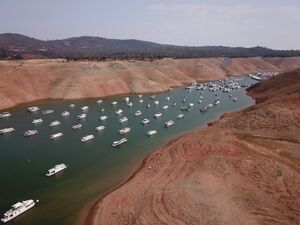 |
Toyota is quietly pushing Congress to slow the shift to electric vehicles’
 |
The Seas Are Rising. Could Oysters Help?’
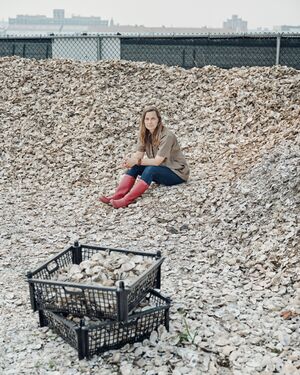
|
It could feed the world’: amaranth, a health trend 8,000 years old that survived colonization’
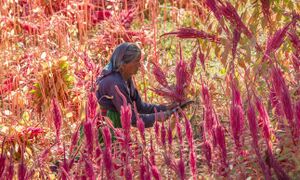 |
Americas Bolivia's lake Poopo dries up and scientists fear refill unlikely’
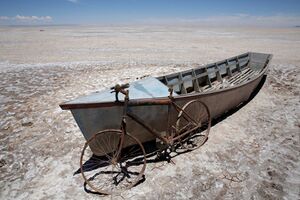 |
Environmental impact of bottled water ‘up to 3,500 times greater than tap water’
 |
For Billion-Dollar COVID Vaccines, Basic Government-Funded Science Laid the Groundwork
 |
Why are so many babies dying of Covid-19 in Brazil?
 |
How the Supreme Court laid the path for Georgia's new election law
 |
From Crisis to Reform: A Call to Strengthen America’s Battered Democracy
 |
New stars on the American flag? Fresh hope as Puerto Rico and DC push for statehood
 |
Two of India’s richest men face farmers’ ire over new laws Two of India’s richest men have landed in an unlikely controversy over farming laws, becoming targets of protesters who allege the tycoons have benefited from their close links to Prime Minister Narendra Modi. The new farm legislation, passed in September, will allow private companies to buy produce directly from farmers, moving from the decades-old system of state-run wholesale buyers and markets that guaranteed a minimum support price. India’s top court last week barred the implementation of the law until the court decides on the matter. |
Underestimating the Challenges of Avoiding a Ghastly Future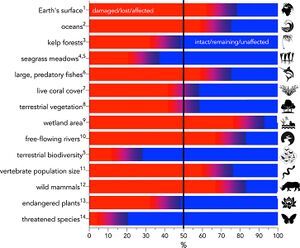 Major changes in the biosphere are directly linked to the growth of human systems (summarized in Figure 1). While the rapid loss of species and populations differs regionally in intensity (Ceballos et al., 2015, 2017, 2020; Díaz et al., 2019), and most species have not been adequately assessed for extinction risk (Webb and Mindel, 2015), certain global trends are obvious. Since the start of agriculture around 11,000 years ago, the biomass of terrestrial vegetation has been halved (Erb et al., 2018), with a corresponding loss of >20% of its original biodiversity (Díaz et al., 2019), together denoting that >70% of the Earth's land surface has been altered by Homo sapiens (IPBES, 2019). There have been >700 documented vertebrate (Díaz et al., 2019) and ~600 plant (Humphreys et al., 2019) species extinctions over the past 500 years, with many more species clearly having gone extinct unrecorded (Tedesco et al., 2014). Population sizes of vertebrate species that have been monitored across years have declined by an average of 68% over the last five decades (WWF, 2020), with certain population clusters in extreme decline (Leung et al., 2020), thus presaging the imminent extinction of their species |
Bellingcat breaks stories that newsrooms envy — using methods newsrooms avoid
 The investigative collaborative — which relies on both paid and volunteer researchers combing through “open-source” digital data available to anyone with the right searching skills — has been responsible for several eye-popping scoops: pinning the crash of a Malaysian airliner in Ukraine to a Russian missile, unmasking spies supposedly behind the poisoning of a Russian double agent in England and dissecting the racist motives of the Christchurch, New Zealand, mosque mass shooter. |
Vote in Poll
Good Long Reads
<paypal>1</paypal>
Model Layout (Edit Source)
Headline’
center|thumb| [Url Byline] Fair Use Quote from article
Pertinent Topics- Racism, Climate Change, electoral process, information access, free speech, income inequality
